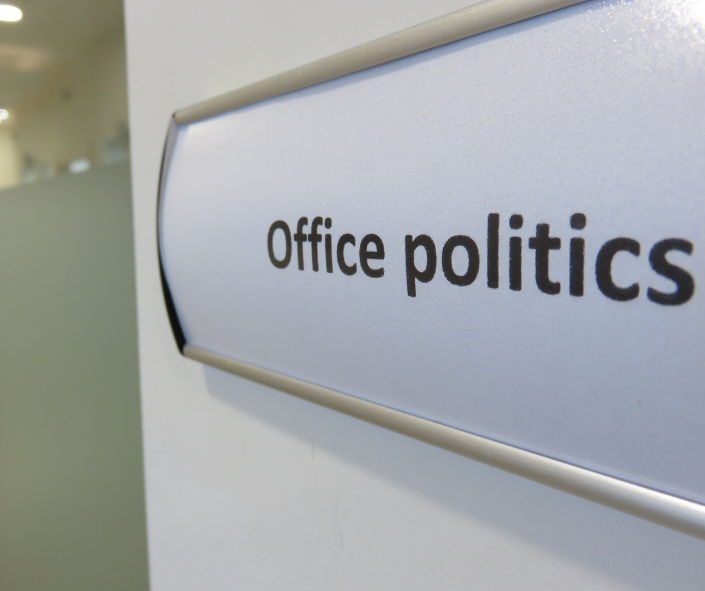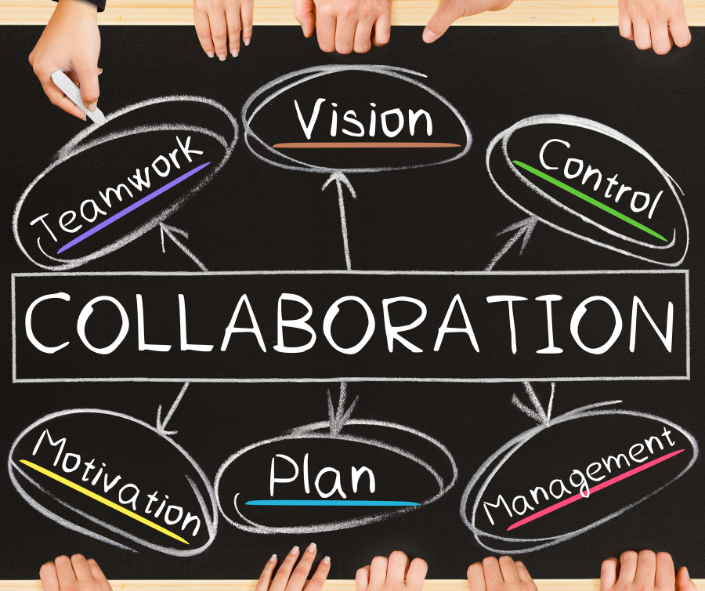September 22, 2023
Office politics increases anxiety in so many people. In every workplace, from the bustling corridors of global conglomerates to the intimate settings of startups, office politics remains an omnipresent reality. It’s often viewed with disdain, conjuring images of backstabbing colleagues or manipulative superiors. However, what if we reframed our understanding of office politics? Instead of seeing it as a treacherous game, let’s recognize it as a nuanced dance of interpersonal dynamics.
Mastering this dance is crucial, not only for individual career progression. But also for fostering a positive and collaborative work environment. By acknowledging the undercurrents, we can better navigate them. Ensuring that we don’t get swept away. Instead harnessing their power for growth and advancement. This blog aims to illuminate the intricacies of office politics. Offering strategic insights to tread confidently through the maze of workplace relationships. Welcome to your roadmap for mastering the political play and elevating your professional journey.
Recognizing the Landscape in Office Politics
The Power Structures
At the heart of any organization lies a blend of overt and covert hierarchies. These aren’t just the organizational charts you might find in an employee handbook. They also include the often unspoken dynamics that drive decisions and influence. It’s pivotal to differentiate between formal leadership—the clear-cut bosses and department heads. And the informal leaders, who might not hold a significant title but wield substantial influence due to experience, relationships, or unique expertise.
Allies and Rivals
Just as a chessboard has its array of pieces, each with its own capabilities and roles. So too does the corporate environment. Recognizing who’s who is essential. Allies are those you can trust, collaborate with, and turn to for guidance. Understanding their motivations helps in building a robust and supportive network. Conversely, it’s equally crucial to identify potential rivals—not to engage in conflicts but to understand their motivations and anticipate challenges. By comprehending both allies and rivals, one can strategize effectively, ensuring smoother collaborations and less friction.
Communication Networks
In an age where information is power, understanding the flow of this information within an organization becomes paramount. Official channels, such as company memos, team meetings, and formal announcements, offer a clear picture of the organization’s direction. However, unofficial channels, the so-called ‘water cooler’ chats or virtual break room conversations, provide a more unfiltered view of sentiments, concerns, and potential opportunities. You have to stay plugged into both these networks to navigate office politics. This way, you not only remain informed but also discern the underlying pulse of the organization, predicting trends and adjusting strategies accordingly.


Self-awareness and Self-management
Know Your Strengths and Weaknesses to Navigate Office Politics
In the grand theater of the workplace, self-awareness is the script that can make or break your performance. Recognizing your strengths offers a foundation to build upon, ensuring that tasks and roles play to these advantages. Equally important, however, is the acknowledgement of weaknesses. These aren’t flaws, but areas ripe for growth. By addressing these limitations, whether through training, mentorship, or collaboration, you pave the way for continuous personal and professional evolution.
Emotional Intelligence
Beyond the metrics of productivity and hard skills lies the soft power of emotional intelligence (EI). EI is the capacity to not only identify and manage one’s own emotions but to also intuit and respond to the feelings of colleagues. In the intricate dance of office politics, a high EQ (emotional quotient) acts as a compass. Guiding interactions, facilitating communication, and ensuring collaborations are based on mutual respect and understanding. By cultivating this intelligence, professionals can navigate workplace challenges with empathy and tact, As well as foster an environment of trust and open dialogue.




Building Genuine Relationships
The Power of Trust
The foundation of any lasting relationship, be it personal or professional, is trust. In the context of the workplace, trust isn’t just a byproduct of delivering tasks on time. It’s cultivated through consistency, authenticity, and transparent communication. When colleagues can perceive you as someone who upholds commitments, displays sincerity in interactions, and stays true to their word. You become a reliable anchor in the ever-shifting sands of office dynamics. This trustworthiness not only enhances teamwork but also positions you as a credible voice in decision-making processes. Making it easier for you to navigate office politics.
Active Listening
Beyond the mechanics of hearing lies the art of active listening. It’s an engagement of undivided attention, wherein one absorbs the spoken words and deciphers the underlying emotions and intentions. Active listening refrains from snap judgments or hasty interjections. Instead, it fosters a space where colleagues feel valued and understood. This practice not only aids in conflict resolution but also engenders a collaborative spirit, making ideation and problem-solving sessions more fruitful.
Networking
Often misconstrued as a ladder-climbing tactic, genuine networking is about weaving a rich tapestry of connections across levels and departments. While it’s beneficial to have rapport with superiors, it’s equally vital to cultivate relationships with peers, subordinates, and even individuals outside one’s immediate department. A diverse network offers a myriad of perspectives, access to a wealth of knowledge, and opens doors to collaborative opportunities. Moreover, in moments of challenges or uncertainty, this web of relationships acts as a support system, offering insights, guidance, and sometimes, simply a listening ear. By prioritizing genuine connections over transactional interactions, professionals can enrich their career journey and fortify their place in the organizational ecosystem.
Communicating with Tact and Diplomacy
How to resolve office conflict
The workplace, like any dynamic environment, presents its fair share of challenges and disagreements. A key facet of diplomatic communication (and office politics) is discernment. Understanding when to assert your viewpoint and when to gracefully step back. Not every hill is worth dying on, and not every disagreement necessitates a confrontation. By evaluating the significance of an issue in the broader context and weighing its long-term implications, you can choose to address matters with assertiveness or exhibit restraint. And avoid office drama.
How to give and receive feedback effectively
Constructive criticism is an art—one that, when mastered, can lead to growth, innovation, and strengthened relationships. It’s imperative to approach feedback sessions with a genuine intent to help, rather than to undermine. Begin with positive observations, offer clear and actionable suggestions, and ensure that the underlying tone is one of support and collaboration. Such an approach not only makes the recipient more receptive to feedback but also establishes the critic as a valuable ally in the journey of professional growth.
How to navigate office gossip
Office corridors and virtual chat rooms can sometimes buzz with whispers and rumors. While it might be tempting to partake in such conversations for momentary intrigue or to feel ‘in the loop’, indulging in gossip can erode trust and tarnish reputations. Engaging in negative chatter not only impacts how one is perceived but can also strain professional relationships. By maintaining a policy of not participating in or propagating gossip, professionals safeguard their reputation. Reinforce their integrity, as well as contribute to fostering a positive and transparent work culture. In the long run, steering clear of gossip ensures that one’s words and intentions are always seen in a credible and trustworthy light.




Influencing without Authority
Leading by Example
One of the most potent forms of influence stems not from titles or designations but from one’s actions and demeanor. In the vast arena of the workplace, actions often speak louder than words. By consistently modeling professionalism, dedication, and integrity, individuals can inspire those around them, even without a formal authority. When colleagues witness you handling challenges with grace, delivering results with consistency, and interacting with respect and empathy, they’re more likely to emulate such behaviors, thereby establishing you as an informal leader and a benchmark for excellence.
How to Create a Positive Work Culture
Behind most successful initiatives or projects lies a coalition of champions rallying behind a shared vision. Influence isn’t just about convincing others but about unifying diverse voices under a common banner. This involves understanding the motivations and aspirations of different stakeholders, identifying areas of alignment, and forging synergies. By building such coalitions, one can garner collective strength, pooling resources, expertise, and influence to propel ideas forward, even without formal authority.
Persuasion Skills
The art of persuasion goes beyond just presenting facts; it’s about framing ideas in a manner that resonates with the listener’s values, needs, and aspirations. This involves a deep understanding of one’s audience, adeptly using storytelling techniques, and presenting arguments that appeal to both logic and emotion. Tailoring your message to different audiences ensures that it strikes a chord, whether you’re pitching to a data-driven executive or a creative team member. Mastering this skill allows individuals to rally support, secure resources, and drive change, all while navigating the nuances of office dynamics without wielding formal power. In essence, the magic of persuasion lies in its ability to turn ideas into shared visions, galvanizing collective action.
Finding a Mentor or Sponsor
The Value of Guidance
In the multifaceted realm of the professional world, having a seasoned navigator can make all the difference. Mentors and sponsors, with their wealth of experience and insights, can provide invaluable guidance, especially when navigating the intricate maze of office politics. They offer perspectives drawn from years of experience, helping you anticipate challenges, strategize effectively, and make informed decisions. More than just advisors, they often act as your champions, advocating for you in rooms you might not yet have access to and ensuring your contributions get the recognition they deserve.
Seeking the Right Fit
Finding the ideal mentor or sponsor isn’t merely about aligning with the most successful or influential person in the room. It’s about identifying someone whose career trajectory you respect, whose values resonate with yours, and with whom you can establish a genuine connection. Such a fit ensures that the guidance you receive is tailored to your aspirations and that the relationship evolves beyond just professional advice to one of mutual respect and understanding.
Mutual Benefit
Often, mentorship is perceived as a one-sided relationship, with the mentee being the sole beneficiary. However, true mentorship is symbiotic. While mentors impart wisdom and open doors, mentees offer fresh perspectives, enthusiasm, and the opportunity for the mentor to give back. Recognizing and valuing this mutual exchange not only strengthens the mentor-mentee bond but also ensures that both parties remain invested in each other’s growth and success. In essence, the best mentorship relationships are those where both individuals grow, learn, and evolve together, each enriching the other’s professional journey.
How to Get Ahead in Office Politics
Keeping Your Integrity
In the dynamic whirlwind of office politics, it’s easy to get drawn into actions and decisions that may offer short-term gains but diverge from one’s core values. However, true professional success is anchored in unwavering integrity. Staying true to one’s principles, even in the face of tempting shortcuts or pressure, sets a precedent of trustworthiness and respect. Such a stance not only earns admiration from peers and superiors but also ensures that one’s career is built on a foundation of genuine accomplishment and honor.
Seeking Win-Win Solutions
Office dynamics often present scenarios where interests collide, leading to potential conflicts. Instead of approaching such situations with a zero-sum mentality, aim to find solutions that benefit all parties involved. This collaborative approach, centered on understanding, compromise, and shared objectives, fosters a positive work environment and ensures sustained harmony. By prioritizing collective success over individual victory, professionals can not only achieve their goals but also elevate the entire team or organization in the process.
Avoiding Retaliation
Setbacks, disagreements, and disappointments are inevitable facets of any professional journey. However, the measure of a true professional is not how they revel in success but how they handle adversity. Retaliating or seeking vendettas in the wake of perceived slights not only tarnishes one’s reputation but can also escalate conflicts and sour relationships. Instead, choose to respond with grace, understanding, and resilience. Analyze the situation, learn from it, and move forward without harboring animosity. By maintaining such composure and restraint, one showcases maturity and leadership, traits that will invariably serve well in any career progression.
Handling Conflict Effectively
Addressing Issues Head-on
Conflicts, if left unaddressed, can fester and magnify, leading to a toxic work environment and strained relationships. Instead of avoiding or sidestepping issues, it’s crucial to tackle them head-on. Open communication is the key. By engaging in honest dialogues and understanding the root cause of disagreements, one can devise solutions or compromises before the problem escalates. This proactive approach not only resolves the issue at hand but also demonstrates leadership and commitment to maintaining a harmonious workplace.
Mediation
There are instances when conflicts reach an impasse, and emotions run too high for a direct resolution. In such situations, seeking third-party mediation can be beneficial. A neutral mediator can provide an objective perspective, facilitate communication between the disputing parties, and help them arrive at a mutually agreeable resolution. This external intervention ensures that conflicts are resolved fairly and that both parties feel heard and validated.
Learning from Disagreements
Every conflict, regardless of its outcome, carries invaluable lessons. Instead of viewing disagreements purely as obstacles, reframe them as growth opportunities. Analyze what led to the conflict, how it was handled, and what could have been done differently. Such introspection not only equips professionals with better conflict resolution skills for the future but also fosters personal growth and understanding. Remember, it’s not the absence of conflict that determines a successful professional journey, but the ability to handle it with maturity, empathy, and foresight. Embracing this perspective ensures that even in the midst of discord, one remains anchored in continuous learning and evolution.
In conclusion, the vast and intricate realm of professional life, office politics is an inevitable reality, much like the ebb and flow of tides. Rather than perceiving it as a murky game of manipulation, we must approach it as a nuanced skill set to be honed. Like any other professional competency, mastering office politics requires insight, practice, and above all, integrity. To achieve enduring career success, it’s vital to weave through these dynamics with both confidence and authenticity. By doing so, not only can one elevate their professional stature but also contribute positively to the organizational culture, fostering collaboration, trust, and mutual respect. Remember, the true mark of a professional isn’t in sidestepping challenges but in gracefully navigating them, turning potential pitfalls into stepping stones for growth.


I’m an ICF Professional Certified Coach (PCC) and a certified executive coach for Twanna Carter Professional & Personal Coaching, LLC. I flubbed my first career transition from the military so badly, it took me the next 10+ years to build my confidence and recover. I know what it feels like to struggle with imposter syndrome and uncertainty about my leadership skills in the workplace. It’s why I am dedicated to empowering Black women. Helping them navigate career challenges and uncertainty by providing them with the tools and strategies they need to be successful. Schedule a V.I.P. Roadmap session today.
If you enjoyed this blog, please share it. If you’re feeling generous buy me a coffee.☕️
Recommended Further Reading and Resources**:
- “I’m Not Yelling: A Black Woman’s Guide to Navigating the Workplace (Successful Black Business Women)“, Elizabeth Leiba.
- “Crucial Conversations: Tools for Talking When Stakes Are High” by Kerry Patterson, Joseph Grenny, Ron McMillan, and Al Switzler.
- “Influence: The Psychology of Persuasion” by Robert B. Cialdini.
- “How to Win Friends and Influence People” by Dale Carnegie.
- “Lean In: Women, Work, and the Will to Lead” by Sheryl Sandberg.
- “The No Asshole Rule: Building a Civilized Workplace and Surviving One That Isn’t” by Robert I. Sutton.
- “The Memo“, by Minda Harts.
- “Quiet: The Power of Introverts in a World That Can’t Stop Talking” by Susan Cain.
Read my latest blogs…
- Are You Really Being Too Much, Or Just Being Seen?Have you ever felt the need to shrink yourself at work or in social spaces, just to avoid being labeled as “being… Read more: Are You Really Being Too Much, Or Just Being Seen?
- Career Shift? These 9 Transferable Skills Resources Are Game-ChangersAs an executive-level professional aiming for a strategic career pivot, knowing your transferable skills isn’t just beneficial, it’s essential. Transferable skills are… Read more: Career Shift? These 9 Transferable Skills Resources Are Game-Changers
- You Need a Hustle Detox. Not Another Planner.Are you tired of buying yet another planner, hoping THIS one will finally fix your chaos? You know the drill: glossy cover,… Read more: You Need a Hustle Detox. Not Another Planner.
- The 5 Core Values Every Black Woman Executive Should Define Before Her Next Career MoveHave you ever felt overwhelmed by opportunities, yet unsure which path truly fits your ambitions, identity, and well-being? If you’re a Black… Read more: The 5 Core Values Every Black Woman Executive Should Define Before Her Next Career Move
- How to Protect Yourself from Being Managed Out – The Ultimate Survival Playbook for Black Women ExecutivesYou walk into the Monday morning meeting, coffee in hand, feeling ready to tackle the week. But something’s off. The room… Read more: How to Protect Yourself from Being Managed Out – The Ultimate Survival Playbook for Black Women Executives
- What Your Inner Critic Is Really Costing You. And How to Take Back ControlHave you ever replayed a single mistake in your mind for days, doubted your abilities before a big meeting, or hesitated to… Read more: What Your Inner Critic Is Really Costing You. And How to Take Back Control
- Why Black Women Execs Doubt Their Voice (and How to Reclaim Your Power)And it starts now. If you’re ready to reclaim your voice, you don’t have to do it alone. Schedule your V.I.P. Roadmap… Read more: Why Black Women Execs Doubt Their Voice (and How to Reclaim Your Power)
- The Trauma Behind the Mask: Why I Walked Away from My Six-Figure JobI didn’t leave my job because I was unqualified. I didn’t leave because I couldn’t handle the work. They began managing me… Read more: The Trauma Behind the Mask: Why I Walked Away from My Six-Figure Job
- Stop Overgiving. Because It’s a Silent Career Killer for High-Achieving WomenYou’re smart. Capable. The one everyone counts on. From boardrooms to family rooms, you handle it all with grace. But beneath the… Read more: Stop Overgiving. Because It’s a Silent Career Killer for High-Achieving Women
- You Feel Empty at Work, But Everyone Needs YouFor Black Women Who Keep Performing. Even When the Tank Is Empty Let’s keep it real for a moment, how many times… Read more: You Feel Empty at Work, But Everyone Needs You
- 🔍 5 Signs It’s Time to Change Careers (And What to Do About It)Have you ever sat in a leadership meeting and thought, “I’ve outgrown this version of myself”?Maybe your calendar is full, your inbox… Read more: 🔍 5 Signs It’s Time to Change Careers (And What to Do About It)
- Let Go of the Cape! Why You Don’t Have to Be Superwoman to Be SuccessfulIf you’re the go-to person at work, the fixer in your family, the one who makes it all look easy, this is… Read more: Let Go of the Cape! Why You Don’t Have to Be Superwoman to Be Successful





















+ show Comments
- Hide Comments
add a comment